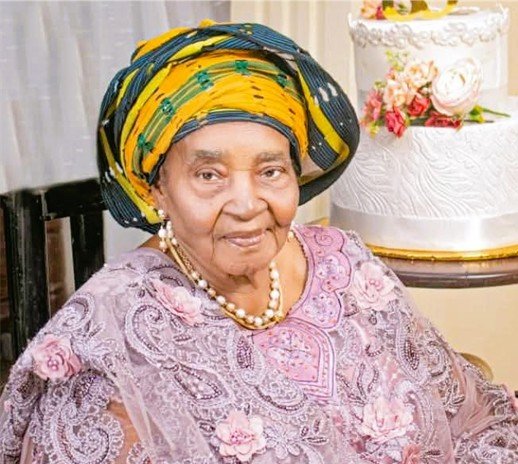
INTRODUCTION:
The Gathering Storm:
The recent flurry of political activity in Northern Nigeria – from regionally concentrated appointments to the high-level Kaduna forum – is not mere coincidence. It signals a profound awareness within the Tinubu administration and the ruling APC that their grip on Nigeria’s crucial electoral powerhouse, the North, is slipping. This paper analyzes the current socio-economic and security landscape in Nigeria, focusing on President Tinubu’s inheritance, policy choices, their consequences, and the escalating disenchantment in the North, particularly among youths and women, setting the stage for a pivotal 2027 election. It also critiques the failure of state governors to effectively channel resources for poverty reduction.
I. The Inheritance: Tinubu’s Daunting Legacy (May 2023)
President Bola Tinubu inherited a nation in profound distress:
1. Economic Quagmire: Sky-high inflation (over 22%), unsustainable fuel subsidy draining billions monthly, crippling external debt ($100+ billion), massive budget deficits, dwindling foreign reserves, and a multiple exchange rate system fostering corruption and scarcity.
2. Security Catastrophe: Rampant banditry and kidnapping in the Northwest, persistent Boko Haram/ISWAP insurgency in the Northeast, escalating farmer-herder conflicts in the Middle Belt, and rising separatist agitations in the Southeast. State control over vast territories was minimal.
3. Deepening Poverty: The National Bureau of Statistics (NBS) reported nearly 133 million Nigerians (63%) in multidimensional poverty, disproportionately concentrated in the North (over 60% of the impoverished). States like Sokoto (90.5%), Zamfara (88%), Jigawa (87%), and Katsina (84%) were epicenters of deprivation.
4. Fiscal Crisis: Low non-oil revenue generation, over-reliance on volatile oil income, and massive debt servicing obligations crippled government capacity.
5. Political Fragmentation: A nation deeply divided along regional, ethnic, and religious lines, with widespread distrust in government institutions.
II. Policy Shifts: Bold Moves and Controversial Steps
Tinubu’s administration embarked on significant, high-risk reforms:
1. Fuel Subsidy Removal (Day 1): Announced immediately upon inauguration.
Rationale: Eliminate fiscal drain (estimated $10bn annually pre-2023), free funds for infrastructure/social investment, curb smuggling. Implementation: Abrupt, without robust palliatives or safety nets in place.
Immediate consequence: Fuel prices tripled overnight, triggering a massive inflationary wave.
2. Foreign Exchange Unification: Collapsing multiple exchange rates into a “willing buyer, willing seller” market.
Rationale: Attract foreign investment, improve liquidity, curb arbitrage. Implementation: Floated into a market starved of dollars, lacking confidence.
Consequence: Naira plummeted from ~N450/$ to over N1500/$ at its worst, massively increasing import costs and debt servicing burdens.
3. Security Reorganisation: New Service Chiefs, launch/revamp of operations (Hadarin Daji, Safe Haven).
Rationale: Fresh approach, decisive action.
Implementation: Tactical shifts but lacking a clear, holistic, long-term strategy addressing root causes (unemployment, poverty, weak local intelligence, porous borders). Bandits adapted, violence metastasized.
III. Mistakes and Miscalculations: Fueling Discontent
The intent of reforms was arguably sound, but critical mistakes amplified pain:
1. Implementation Brutality: The “shock therapy” approach to subsidy removal and FX float, without adequate preparatory measures or phased sequencing, inflicted maximum immediate pain on citizens and businesses.
2. Inadequate Palliative Rollout: Promised palliatives (cash transfers, CNG buses, food subsidies) were delayed, poorly targeted, insufficient, and mired in bureaucratic bottlenecks or allegations of mismanagement. The impact was negligible against the tsunami of inflation.
3. Communication Failure: Government messaging often seemed detached, focusing on long-term gains while failing to adequately acknowledge or address the acute suffering. This bred resentment and perception of indifference.
4. Perception of Cronyism: Early appointments, particularly in key economic and security portfolios, showed a heavy bias towards the South-West, feeding narratives of exclusion in other regions, including the North. The recent Northern appointments are widely perceived as reactive panic, not genuine inclusion.
5. Underestimating the Human Cost: The policies drastically eroded purchasing power. Combined with pre-existing poverty, they pushed millions more into destitution, particularly in the high-cost, high-poverty North. Hunger became a primary political issue.
IV. Gains Achieved: Fragile Foundations
Despite the turmoil, some gains are cited:
1. Increased FAAC Allocations: Removal of the subsidy significantly boosted monthly allocations to Federal, State, and Local Governments (FAAC).
Consequence: While states received more money, the impact was often negated by inflation and a lack of visible, effective utilization for poverty reduction (see Section VI).
2. FX Market Transparency (Theoretically): The opaque arbitrage of the multiple exchange rate system was dismantled.
Consequence: Transparency came at the cost of massive devaluation and instability, deterring rather than attracting significant FDI.
3. Potential Long-Term Fiscal Health: The reforms could set a foundation for sustainable public finances if managed effectively and complemented by massive productivity gains and revenue diversification (still nascent).
4. Infrastructure Focus: High-profile projects like the Lagos-Calabar Coastal Highway and push for Port reforms signal intent.
Consequence: Criticisms of cost, prioritization (Southern focus perceived), and displacement overshadow progress for many.
Recent Federal Executive Council approvals reflect attempts to address some pressing needs, including the approval of funds for critical infrastructure projects aimed at economic revitalization in the North. However, these approvals also highlight ongoing concerns regarding the effective and transparent implementation of these initiatives.
V. Consequences: A Nation in Deeper Distress
The interplay of policies, mistakes, and pre-existing conditions led to severe consequences:
1. Hyper-Inflation: Headline inflation soared above 35% (May 2025), with food inflation catastrophic in the North (Borno: 64.4%, Katsina/Kebbi >55%). This decimated household budgets. Staples like rice, maize, and tomatoes became luxuries. Hunger riots and “looting of warehouses” became frequent occurrences.
2. Deepened Poverty & Humanitarian Crisis: Multidimensional poverty likely worsened significantly. School dropouts increased due to hunger/fees, (though now being reduced by the NELFUND program), malnutrition rose, and healthcare access declined. The North bore the disproportionate brunt.
3. Security Deterioration: Economic desperation became a potent recruiting tool for bandits and terrorists. While military operations continued, killings and abductions escalated (over 2,266 killed in H1 2025). Bandits effectively controlled large rural areas, disrupting farming – the North’s primary livelihood – and trade routes. The perception of federal helplessness grew.
4. Erosion of Trust: The gap between government pronouncements and lived reality widened dramatically. Trust in federal and state institutions plummeted. Social media (#SecureNorth, #EndFoodInflation, #NorthBleeds) became outlets for palpable rage and despair, especially among Northern youths.
5. National Unity Strain: Perceptions of marginalization intensified not only in the North but also in the South-East and South-South, despite some projects. The “Federal Character” debate became more acrimonious, fueled by the sequence of appointments (initial Southern tilt, followed by Northern over-correction).
VI. The Failure of State Governors: Poverty’s Local Architects
While federal policies set the macro context, the abject failure of Northern (and many Southern) State Governors to effectively utilize increased FAAC allocations and drive pro-poor initiatives at the local level is a critical accelerator of the crisis:
1. Misplaced Priorities: Obsession with white-elephant projects, inflated contracts, and recurrent expenditure (often including bloated bureaucracies) over targeted poverty reduction, primary healthcare, education, and agricultural support.
2. Weak Local Governance: Failure to strengthen Local Government Areas (LGAs) as engines of grassroots development. LGAs remain financially strangled and politically subservient to Governors, hindering effective resource delivery to communities.
3. Lack of Accountability & Transparency: Widespread corruption and lack of transparency in the use of state resources. Funds meant for palliatives, agricultural inputs, or social programs often vanish or are poorly distributed.
4. Inadequate Social Investment: Failure to design and implement robust, scalable state-level social safety nets (beyond sporadic federal efforts) to cushion the impact of federal reforms on the most vulnerable.
5. Poor Agricultural Support: Insufficient investment in extension services, irrigation, storage facilities, and access to credit for smallholder farmers, leaving them vulnerable to climate shocks, insecurity, and market volatility.
This gubernatorial failure meant that increased federal allocations did not translate into tangible poverty reduction at the community level, directly fueling the anger felt by Northern populations who see little return on their political investment.
VII. The North’s Roar: Disenchantment and the 2027 Calculus. The consequences converge most dangerously in the North:
1. Youthquake: Northern youths, the demographic majority, are digitally mobilized (#ArewaTwitter, TikTok), politically aware, and furious. They experience unemployment, hunger, and insecurity daily. Token appointments and promises of “2031” (as SGF Akume suggested) are insulting. Their votes are no longer guaranteed for the APC or any party based solely on regional sentiment.
2. Women’s Burden: Women bear the brunt of household economic survival amidst hyperinflation and insecurity. Their disenchantment is deep and often unspoken but politically significant within families and communities.
3. Elite vs. Masses Divide: While Northern elites may appreciate appointments, the masses experience only neglect and hardship. This disconnect weakens elite influence over the voting populace.
4. Opposition Opportunity: Parties like the African Democratic Congress (ADC) and revitalized PDP factions are actively courting this dissent. Figures like Babachir Lawal warn APC Northern governors face electoral oblivion. The mythical “Buhari 12 million bloc” is fragmenting.
5. Demand for Tangibles: The North’s message is clear: 2027 will be a referendum on results – reduced inflation, affordable food, security, and jobs. Symbolic gestures are insufficient. The region that delivered 64% of Tinubu’s votes feels profoundly betrayed and is poised to wield its electoral power decisively, potentially against him.
VIII. 2027: Referendum on Survival, Not Sentiment
The 2027 election is shaping up to be fundamentally different:
1. Beyond Tribal Arithmetic: While ethnicity and region remain factors, the primary divide will be between those perceived to offer solutions and those held responsible for the current misery. Voters across all regions are hurting (Ebonyi: 25.9% food inflation, Cross River: 27.3%).
2. Performance Legitimacy: The core question is: “Who will make life better for me and my children?” This trumps traditional loyalties for a growing number, especially the youth.
3. APC’s Precarious Hold: Tinubu/APC enters the cycle politically wounded. Retaining the North requires demonstrable, credible improvements in security, food prices, and economic opportunity well before 2027 – a monumental task. Failure risks a catastrophic loss of their core voting bloc.
4. Opposition Resurgence: A united or effectively coordinated opposition offering a coherent alternative narrative focused on economic recovery, security, and equity could capitalize massively on the widespread discontent, particularly in the North.
5. The Digital Battleground: Social media sentiment, driven by youth documenting empty markets, inflation charts, and security failures, will play a crucial role in shaping narratives and mobilizing voters, bypassing traditional party structures.
CONCLUSION: The Soul at Stake
President Tinubu inherited a broken nation but compounded its crises through policy shock therapy, poor implementation, and inadequate mitigation. The consequences – hyper-inflation, deepened poverty, and worsening insecurity – have hit the North hardest, breeding unprecedented disenchantment among its crucial youth and women voters. State governors, particularly in the North, share significant blame for failing to translate resources into local poverty reduction. The recent flurry of Northern appointments is a desperate, likely ineffective, attempt at damage control.
2027 will not be a conventional election fought on ethnic zoning or past loyalties. It will be a referendum on tangible outcomes – on who can provide food security, safety, and economic hope. The “Soul of the North,” and indeed Nigeria, hangs in the balance. If the current trajectory persists, the North’s electoral powerhouse, once the APC’s fortress, could become the engine of its defeat. The battle lines are drawn not between regions, but between effective governance and the crushing weight of unmet basic needs. Nigeria’s future stability hinges on delivering results, not rhetoric, before it’s too late.
Dr Ibrahim Bello Dauda (EL-DABI)
A Strategist, Policy Analyst, Critical Thinker, Researcher & Citizens Advocate
ibdauda09@gmail.com


